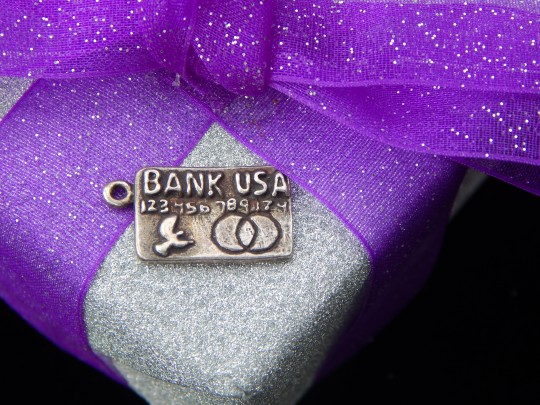#debit
Text
i will say taylor getting together the iconic country girlies from the late 90s and early 2000s who inspired her early work for the recording of debut tv would be the most taylor thing ever
11 notes
·
View notes
Text
I've been meaning to write some posts explaining basic accounting principles for curious laypeople. I've finally started!
The Fundamental Law of Debit and Credit
Equity
The fundamental laws of any field of study often seem unrelated to the final result. To discover why mixing baking soda and vinegar makes bubbles, you must learn atomic theory. To understand why a map never needs five colors, you must study triangles. To read a 10-K, you must know what the word "equity" means.
If you've heard the word "equity" (in a context where it doesn't mean "being equal"), you have probably heard of home equity loan—a way of obtaining cash based on the value of your house, assuming you could somehow afford one.
Home equity is quite simple; it's the difference between the current value of your house and the amount you owe to the bank. In a sense, it's the amount of house you own.
Assets, Liabilities, and Equity
Imagine that you are not only rich enough to own a house, but rich enough to own two houses. You took out a separate bank loan for the new house, but that's fine—you're ready to become a landlord, and rent payments are going to exceed loan payments.
This second house is essentially a small business. The house is a resource for which you expect to receive a future benefit, or in business terms, an asset. The loan is an obligation to fork over assets (specifically cash) in the future, or a liability. And the difference between them, as with your actual home, is your equity.
Houses don't literally just sit there and print money. You might take out a smaller loan to add a swimming pool to the lot, for instance. Or you might build a tree house, or realize you forgot to pay your handyman's fees. This complicates the situation slightly, but not by that much.
Total Equity = Total Assets - Total Liabilities
A real estate corporation managing hundreds of houses and loans, plus a bank account and salaries it hasn't paid yet and so on, its ownership split among dozens of shareholders, follows this same equation. But stating it like this isn't helpful for most accounting purposes; more commonly, you'll see it stated like this:
Total Assets = Total Liabilities + Total Equity
This highlights another perspective on what liabilities and equity represent. Liabilities are, in a sense, the portion of the company owned by (or at least owed to) its creditors, while equity is the portion of the company owned by its owners.
If you only own one or two houses, the exact numbers don't matter much. As long as you make enough money to pay all the bills, you're doing fine. But a big company has obligations to dozens of people—its owners, its creditors, possibly the SEC and similar agencies. A company needs to keep careful track of its assets and liabilities.
Double-Entry Bookkeeping
The origin of the most fundamental accounting technique has been lost to the sands of time. Some say it was invented in Israel under the early Roman Empire, or in Korea during the 11th century, or in Italy during the 13th century, or in India during a century not listed on Wikipedia.
It wouldn't surprise me if it was invented more than once, because the basic concept is dead simple. Your page has two columns. Write assets on the left, write liabilities on the right. Equity goes on the right, too, or something equivalent.
Modern accounting has a lot more rules. But they're all about what you write in each column; this structure has remained constant for almost as long as we have detailed accounting records that haven't crumbled to dust.
The Balance of Debit and Credit
Debits and credits are just the name we give to entries in those books. Increases to assets are called "debits"; increases to liabilities and equity are called "credits". But decreases to assets are credits, and decreases to liabilities or equity are debits.
Speaking very loosely: Debits are things the company wants, while credits are what it pays to get those things.
Remember that equation I showed you earlier? Assets equal liabilities plus equity? If an asset increases, one of three other things happened: Another asset shrank, or a liability or equity grew. If you acquire a new liability, you got rid of another, lost equity, or gained an asset. And so on.
This is the immutable axiom of accounting. 1 × a = a, ΔU = Q - W, debit equals credit. Or to put it another way:
Every transaction must have an equal balance of debit and credit.
What's up with the cards?
Might as well explain this real quick.
From a bank's perspective, your savings account is literally a liability. When you deposit your paycheck, the bank recognizes both cash and an obligation to return that cash. When you withdraw money, the bank reduces its cash, and also your account. Reducing your bank account is a debit, and that's true whether you're withdrawing physical cash or using a plastic card to pay for groceries electronically. It's a card that debits your account.
As for credit cards...well, that's just a case of one word having multiple meanings. "Credit" has its accounting definition, and also the definition of "letting someone borrow money". They're not unrelated—a business borrowing money credits some liability to represent that debt—but credit cards aren't related to accounting credits.
4 notes
·
View notes
Text
thinking about the old debit machine at work that would sometimes crash and show a weird smiley

6 notes
·
View notes
Text
you know you've been here too long when your blog's lore is kinda well known in the mutual circles
16 notes
·
View notes
Text
i never had the chance to be a swiftie during speak now era, so i’m soaking this moment in to have a small taste of what it was like for swifties 13 years ago. i’ve been a swiftie now for three years, and i have to say, they have been the best three years of my life.
#thank you taylor#love you#taylor swift#debit#fearless taylor’s version#speak now taylor’s version#red taylor’s version#1989 album#reputation album#lover album#folklore album#evermore album#midnights album#i’m so sorry for the spam
5 notes
·
View notes
Text
youtube
La cantidad de votos y comentarios negativos lol
2 notes
·
View notes
Text
Verdeil brought the Marquis to dine with us, and in the evening arrived Horne and his family, Acciaoli, Mrs Streets, her fat confidante, husband and lover. The last mentioned pair, in defiance of common prejudices, are upon the most peaceful amicable footing, and never give each other the least disturbance. Both are equally dull and equally insipid; both portion out their attentions to the lady in a sober phlegmatic manner, and I should almost imagine from the style of their appearance and conversation keep a balance of debit and credit with commercial regularity.
William Beckford, Vathek and Other Stories (Penguin Classics)
#quote#quotation#William Beckford#travel diaries#anecdote#family moments#husband#lover#debit#credit#he's not impressed by her choice of boyfriend
2 notes
·
View notes
Link

17 notes
·
View notes
Text

6 notes
·
View notes
Text
Of course my wallet gets stolen
#drivers licence#health card#debit#with 6 fraud transactions in the hour#doooone#get to walk to autopac tomorrow and get a temporary licence
4 notes
·
View notes
Text
Vintage Sunwest Sterling Silver Credit Card Charge Debit Money ATM Bank Shopping Charm Pendant

Wonderful sterling silver charm of a credit card! This tiny charm has a rich patina and has minor signs of wear consistent with age. So very cute and will look terrific on your favorite charm bracelet or necklace!
#etsyshop#vintagecharms#credit cards#charge it#money#bankcards#sunwest#retail therapy#shopping mall#retail sales#cash#debit#mastercard#visa#american express#window shopping
0 notes
Text

Mobile - Recharge: BEFFY FINSERV
Recharging Mobile and Data Cards are now easier than ever. Retailers can quickly recharge Mobile and Data Cards of all operators through the Beffy portal. This facility provides customers with ease of access as they need to visit their nearest Beffy retail outlet instead of searching for their operator’s official store. Beffy integration with all major operators allows the recharges to happen on a real time basis.
#beffy#beffyfinserv#CashDeposit#Deposit#WITHDRAW#withdrawals#CashWithdrawal#MobileRechargeApp#mpos#credit#creditcard#debit
0 notes
Text
Der glitschige Abhang der Bezahlkarte
Der glitschige Abhang der Bezahlkarte
Die Bezahlkarte für Flüchtlinge ist die bisher schärfste monetäre Repression in Deutschland. Viele haben Verständnis dafür – dabei ist sie erst der Anfang. Daraus macht der Herausgeber keinen Hehl.
Die Bezahlkarte für Flüchtlinge ist die bisher schärfste monetäre Repression in Deutschland. Viele haben Verständnis dafür – dabei ist sie erst der Anfang. Daraus macht der Herausgeber keinen Hehl.
Continue reading Der glitschige Abhang der Bezahlkarte

View On WordPress
0 notes
Text

Your card is ok, but I prefer Venmo.
0 notes
Text
Cut your hidden banking costs!
Join me and over 35 million users who love Revolut. Sign up with my link below: https://revolut.com/referral/?referral-code=jwanay5h3!NOV1-23-AR-US
0 notes
